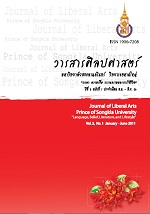Postmodern Consumerist Condition and Its Effects on People in Don DeLillo’s White Noise
Keywords:
consumerism, postmodern, white noise, Don DeLilloAbstract
This paper will discuss the negative effects of consumerism on people in the postmodern condition in Don DeLillo’s White Noise (1986). Employing postmodern theories, it will examine the threat of consumerism to humans. It argues that consumerism physically and mentally affects consumers. On the physical level, people living in the consumerist society cannot avoid environmental and toxic hazards. Even simple products, such as chewing gum, can harm them. Moreover, the logic of consumerism can cause people serious mental problems, leading people towards faulty perceptions, a consumerist type of schizophrenia as described by Fredric Jameson and Jacques Lacan. Postmodern schizophrenics lack the ability to see the proper boundaries between meanings, or in other words, between signified and signifier and are deprived of personal identity. After being bombarded with advertised information, consumers relentlessly buy products and feel that the products they buy determine their identity. In White Noise, Don DeLillo presents a vivid picture of the postmodern toxic world that provides people with no real certainty, but rather a fear of death and fatal diseases. It is a world where people’s minds and behaviors are manipulated by the logic of consumerism.
Downloads
How to Cite
Issue
Section
License
The authors retain the copyright to their article but the Journal of Liberal Arts, Prince of Songkla University reserves the exclusive rights to first publication.





